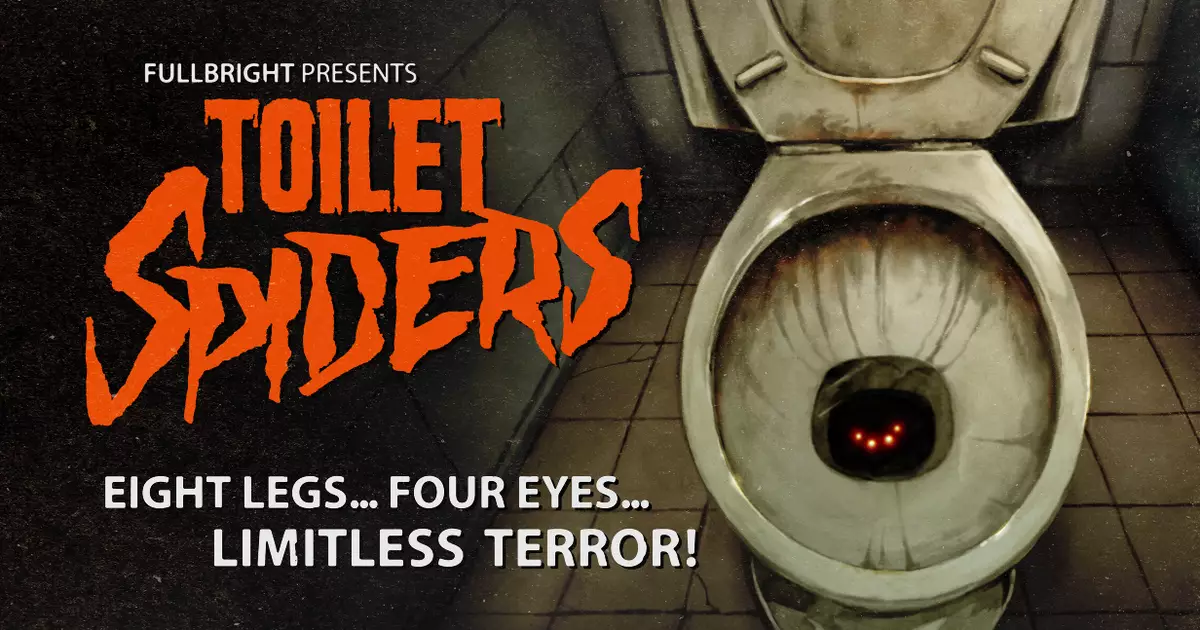The gaming landscape is often marked by the evolution of studios and the genres they explore. Fullbright, once primarily known for its evocative narrative experiences like *Gone Home* and *Tacoma*, has taken a striking turn with their latest offering, *Toilet Spiders*. This installation strives to merge familiar elements of storytelling with bizarre, almost absurd horror. As players, we once navigated through poignant tales of identity and familial ties; now, we are thrust into an Exclusion Zone teeming with radioactive spiders lurking in toilets. Such a dramatic pivot prompts both intrigue and contemplation about the implications of this shift in thematic focus.
Gone are the melancholic echoes of a young girl relic-hunting within the confines of her family’s past, replaced instead by the jarring horror of survival against giant spiders. The emotional depth characteristic of Fullbright’s previous titles is now embodied in a suspenseful quest for survival rife with anxiety-inducing resource management and oddball mechanics. While the intent is to create tension and provoke thought about fear and the uncanny, the real challenge arises in how successfully the studio achieves this balance.
In *Toilet Spiders*, players inhabit a nameless ‘volunteer’ plunged into a treacherous situation dictated by an oppressive regime. The layout of the game—an Exclusion Zone subdivided into floors—echoes classic survival horror mechanics, wherein exploration and resource gathering are paramount. Objects essential for survival, such as dim light bulbs and limited flash grenades, accentuate the need for strategic thinking and risk assessment. The stakes are palpable as players scrounge for items vital to evade or confront the monstrous arachnids that symbiotically represent physical danger and psychological terror.
Interestingly, the game’s premise is laced with dark humor, suggesting subversion of typical horror tropes. For instance, the notion of “toilet spiders” is absurd yet terrifying, tapping into primal fears associated with the bathroom—a space often considered a sanctuary. This interplay of humor and horror mirrors Victorian gothic traditions, suggesting that fear can be as integral to our psyche as our more rational thoughts. Yet, this decision also brings with it a certain absurdity that may not resonate with purists looking for a deeply articulated narrative.
Beyond the game mechanics, *Toilet Spiders* reverberates with the complex socio-political context surrounding Fullbright and its former head, Steve Gaynor. The problematic history of the studio, marred by allegations of misconduct and toxicity, casts a long shadow over this new work. An examination of the giant spiders metaphorically reflecting the creeping dread of workplace environments and psychological turmoil becomes almost inevitable.
The juxtaposition of a fearsome arachnid in a mundane space— the toilet—may resonate with players on levels beyond immediate gameplay. It provokes a contemplation of the ‘real’ monsters that lurk in our daily environments: toxicity, fear, and anxiety manifested in potent ways. This layered interpretation raises questions about the nature of art and how personal experiences inevitably shape creative outputs.
As of September 2023, the trajectory of Fullbright remains contentious. With Gaynor’s departure and the studio’s lean staffing, the future of its artistic vision hangs precariously in the balance. The new direction laid out in *Toilet Spiders* could suggest an attempt to reclaim agency from the shadows of past controversies, or it may highlight the existential dread of creators whose contexts have shifted dramatically.
Ultimately, as players engage with *Toilet Spiders*, it will be pivotal to approach the experience with an understanding of both its ludic elements and the complex backstory of the studio. Whether celebrated or condemned, Fullbright’s latest title undoubtedly raises questions about the nature of fear, creativity, and the spaces we inhabit—be they real or virtual. While the game veers into the absurd, it stands as a testament to the unpredictability of artistic evolution, showcasing how the confluence of experience, context, and game design can create something uniquely unsettling.

